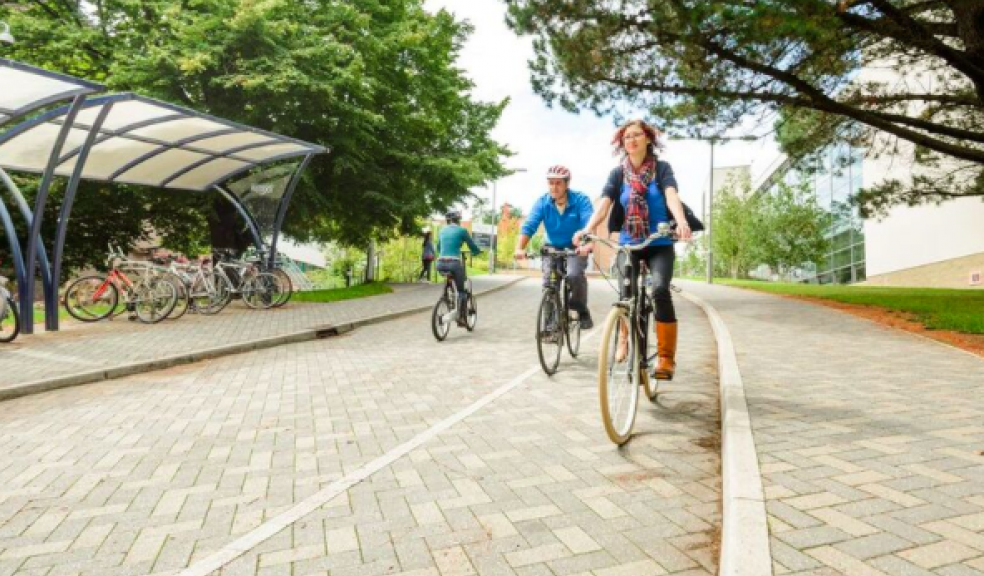
University backs Exeter Cycling Charter
The University of Exeter is encouraging more students and staff to cycle to campus by signing a citywide charter aiming to tackle inactive lifestyles, congestion and pollution.
The University of Exeter became the latest supporter of the Exeter Cycling Charter on Wednesday 25 January, joining over 150 different organisations.
The Charter aims to make Exeter a city where people of all ages can cycle to their place of work or study safely. It encourages the prioritisation of people on the city’s roads and public spaces in a way that makes cycling a safe, natural choice for more everyday journeys; working towards making Exeter a healthier, more active place to live.
By backing the Charter, the University has demonstrated support for cycling as an everyday means of transport for people of all ages and abilities.
Joel Smith is the University’s Sustainable Travel Coordinator and is responsible for the delivery of the Sustainable Travel Plan. He said: “The University is delighted to support the Exeter Cycling Charter which demonstrates our ongoing commitment to sustainability.
“Cycling is great for wellbeing. People who cycle regularly are both physically and psychologically healthier, so it’s no surprise we are keen to actively encourage our staff and students to switch to this means of transport.”
By signing up to the Charter, organisations recognise the need for a network of convenient, connected and safe cycle infrastructure in Exeter. They are also pledging to support Devon’s leaders in delivering a better future for the city, where cycling is a key means of tackling congestion and pollution.
The University of Exeter has long promoted cycling and in September won the National Cycle Challenge, beating 2,000 organisations nationwide. The Streatham campus also hosts e-bikes as part of the first hire scheme of its kind for electric bicycles in the UK.
There are a number of cycling incentives in place at the University such as the cycle to work scheme, the pool bike scheme and the University’s Bicycle User Group (BUG).














